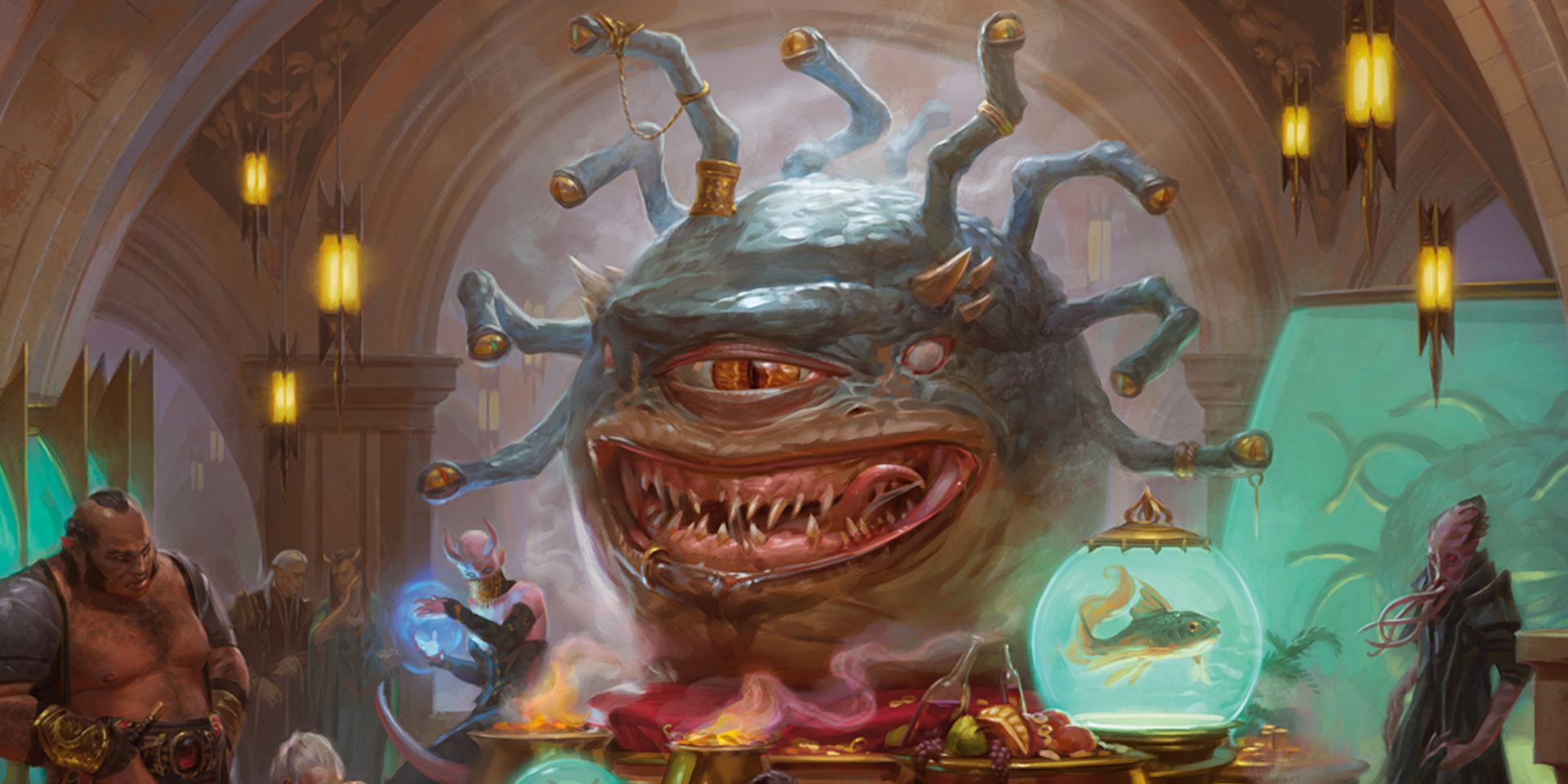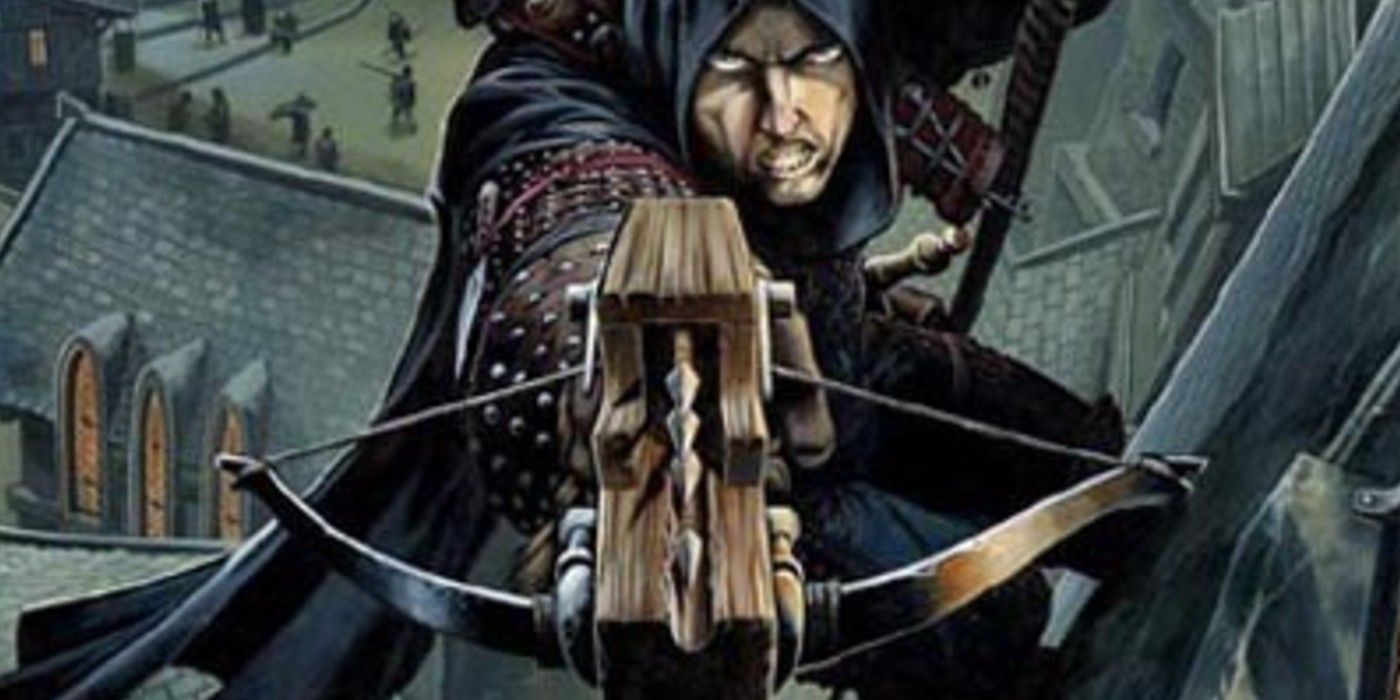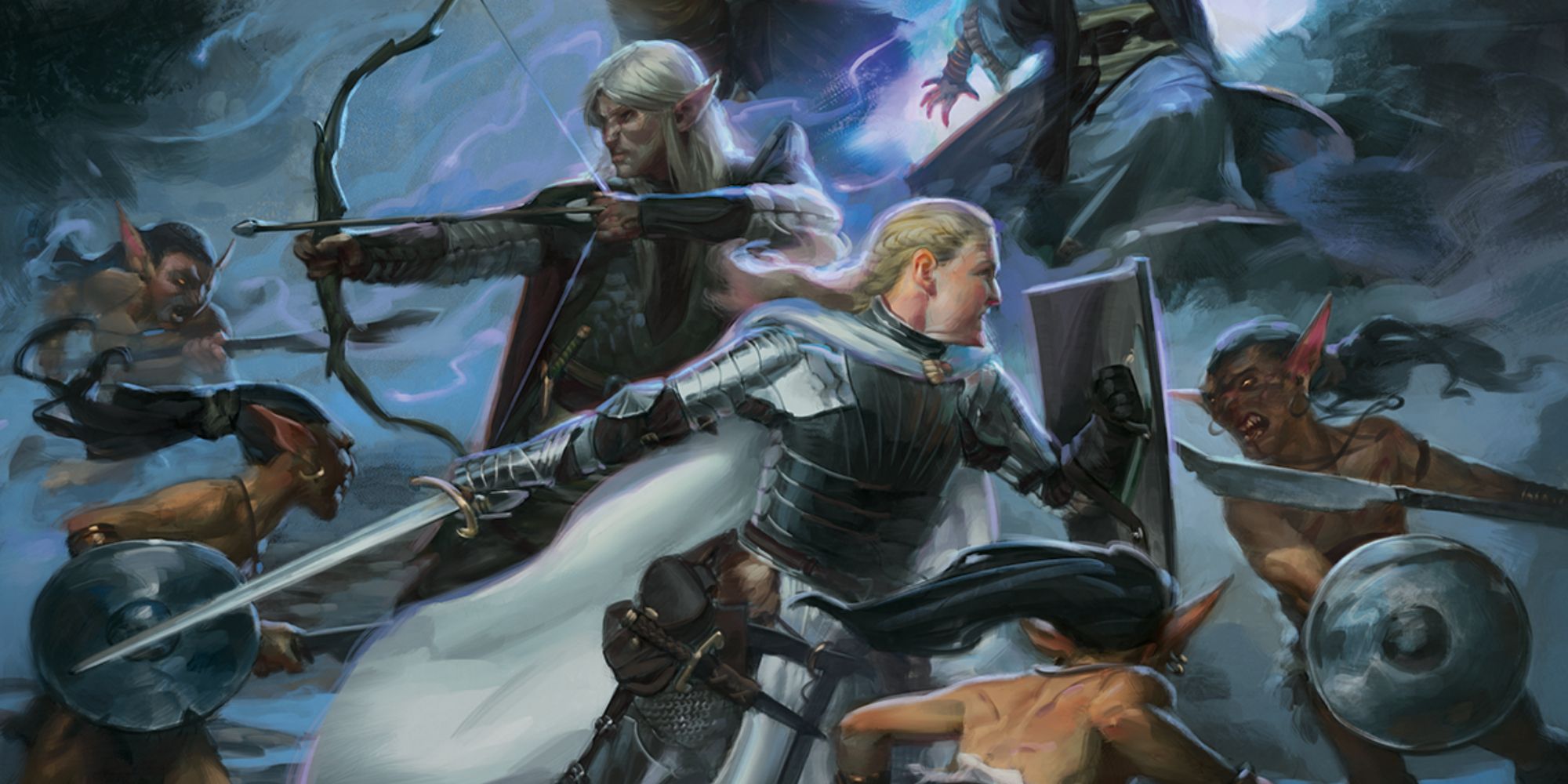Player characters in Dungeons & Dragons don't always have to be the good guys. Sometimes, it can be fun to roleplay a character breaking bad, or one who was already villainous at the get-go. Being the bad guy and establishing a criminal network can be the basis for an entire campaign, and involves numerous different steps and phases. Players will have to put serious thought and preparation into their empire in order for it to succeed, but once it's off the ground it can provide hours of fun and interesting plots for them to weave.
Dungeons & Dragons allows players to experience a range of fantastical stories curated by their Dungeon Master. Players can fight fearsome dragons, rescue captive hostages, and collect a dragons' hoard of loot along the way (if they can carry all that heavy D&D gold). Alternatively, players can lean into their evil urges and conquer kingdoms, revive dark gods, or be classic Dungeons & Dragons murder-hobos. The endless amount of choices and variations in gameplay are what makes the game so appealing and ensure that there is always an adventure to be had.
Establishing a criminal empire in Dungeons & Dragons requires several things. Players must establish contact with other like-minded n'er-do-wells, plan devious capers, and set up a diverse portfolio of criminal enterprises to partake in. Once each of those has been taken care of, players can go off and adventure knowing that their illicit operations will provide a steady source of backup income should the dragon's hoard prove lacking. Or, they can put their full attention toward the maintenance of their empire, and grow it to where it can rival any legitimate power of the land, essentially turning the players into rulers of their own underground kingdom (a great way to end a long-running D&D campaign).
Establishing A Criminal Network Will Help Build A Dungeons & Dragons Crime Empire
Though being a one-person Dungeons & Dragons crime empire is possible, it is much easier to go at it with help. Should players wish to establish their own criminal empire, they should look into establishing criminal contacts first. These first contacts could be anyone from beggars and pickpockets to shady nobles that the party has had dealings with. Once a network is established, it will be much easier to pursue any criminal goal. Contacts can be trusted to handle things in the players' stead, freeing up their time to deal with the other aspects of starting up a crime family. Underlings can also keep the empire going once established, meaning that the players can spend time planning bigger scores rather than scraping together the coin to pay their dues.
In Dungeons & Dragons, Planning Scores Should Be A Part Of Any Crime Empire
To start a criminal empire, players must be prepared to do crimes. With such a wide assortment of crimes to choose from, it can be difficult to pick where to start (like looking for something on one of D&D's biggest maps), but some pieces of advice can help foster a burgeoning crime empire. It is advised to start small in Dungeons & Dragons villainy. Robbing a local shop is likely going to be easier than emptying the royal treasury. Should the players get caught, one could be forgiven with a fine or a short stay in the local jail, while the other could carry a life sentence or worse. Once players have a few scores under their belt, they can put the money toward more long-term criminal enterprises that require startup costs, like blackmailing corrupt nobles or selling forged art pieces. These may be less hands-on (especially with the help of various hirelings) but will generate a passive income that can eventually fuel many other aspects of the enterprise.
Diversity Is The Spice Of Life In Dungeons & Dragons
It is a rare criminal empire that makes its money solely on theft or blackmail. In order to stay successful (and evade capture by the law), a criminal empire should have a variety of different enterprises that it is involved in. Forgery, theft, blackmail, and more are all viable criminal acts that can feed money to a Dungeons & Dragons party. If the town guard happens to bust a player's forgery ring, having multiple other lines of business ensures that they can withstand the financial loss and have other associates that they can rely on.
It also means that the law will have a much harder time trying to shut the entire empire down, as they will have to contend with multiple lines of business in various states of criminality. To this end, it is also advisable to have several legitimate front businesses (once the players have more to spend than just their starting D&D gold) to confuse the law further as well as legitimize the gold they earn through their illicit businesses.
Having A Hierarchy Can Ensure That The Dungeons & Dragons Party Survives
Criminal operatives tend to operate on different levels of importance. The street-level footpad responsible for pickpocketing is likely not going to be as important to the enterprise as the kingpin who set the whole thing up. Establishing a hierarchy within a Dungeons & Dragons criminal syndicate can ensure that everyone knows their roles, who they report to, and how they go about doing business. Without it, power struggles could cause the empire to implode, or worse yet, players could be usurped by power-hungry underlings. With firm roles in place, the event of a coup is much less likely. Not to mention, players will know who to talk to about business in the guild and who is fit only to give orders to and little else.
Starting a criminal enterprise, whether alone or with the entire party, can be a fun direction to take a Dungeons & Dragons game instead of debating whether Dragonlance or Forgotten Realms is a better setting. If all players are on board, they can be the tops of an empire that reaches every facet of the society they establish it in. If only some of the party is involved, it could be a fun idea to manage the empire while keeping the other members of the party in the dark. By establishing a hierarchy of contacts, planning and executing scores, and setting up a diverse array of criminal enterprises, players can spend entire sessions tending to their empire, giving the Dungeon Master much-needed time to plan the next adventure or the next encounter with the local guard.





